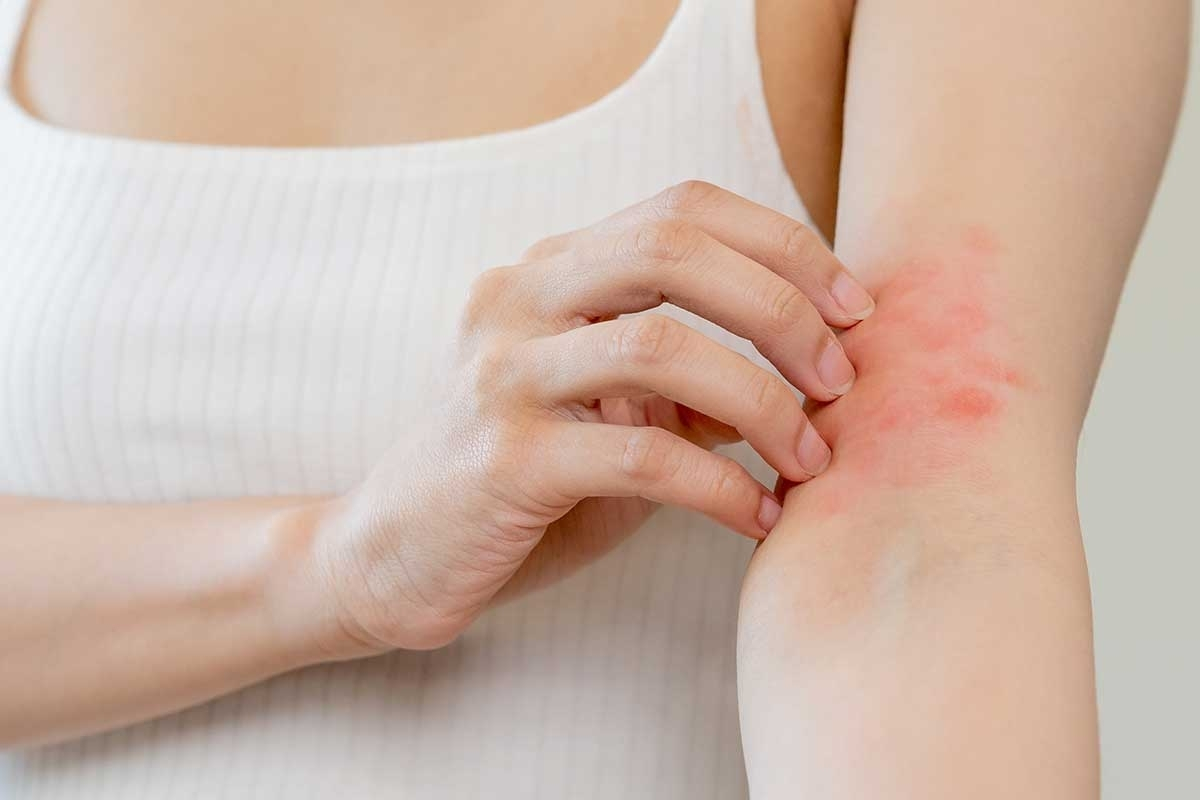Allergies: Causes, Symptoms, and Treatments
Allergies are a widespread health concern, impacting millions of people worldwide. Understanding their causes, symptoms, and treatments is crucial for managing this condition and improving overall quality of life. In this comprehensive guide, we'll dive into the key aspects of allergies and how to tackle them effectively.
What Are Allergies?
Allergies occur when the immune system mistakenly identifies harmless substances as threats. These substances, known as allergens, trigger an overreaction, leading to various symptoms.
The immune system’s role is to protect the body from harmful pathogens. However, in allergic individuals, it flags non-threatening substances, like pollen or certain foods, as dangerous invaders. This response results in the release of histamines and other chemicals, causing allergic reactions.
Common Allergens
- Pollen: Released by plants, especially during spring and fall.
- Dust mites: Microscopic insects that thrive in household dust.
- Foods: Common culprits include nuts, shellfish, milk, and eggs.
- Medications: Antibiotics like penicillin often trigger allergic responses.
- Insect stings: Bees, wasps, and ants can cause severe reactions in sensitive individuals.
Causes of Allergies
Allergies are influenced by genetic, environmental, and lifestyle factors. Here's how these aspects contribute:
Genetics and Family History
If your parents or siblings have allergies, your chances of developing them are significantly higher. This genetic predisposition affects how your immune system reacts to allergens.
Environmental Factors
Exposure to pollutants, mold, or high pollen counts increases the likelihood of allergies. Urban environments, with their higher pollution levels, often exacerbate allergic conditions.
Modern Lifestyle Changes
Urbanization and diets rich in processed foods might contribute to rising allergy cases. Reduced outdoor activities limit early immune exposure to various microbes, which could strengthen natural defenses.
Hygiene Hypothesis
This theory suggests that overly sanitized environments can hinder immune system development, making it hypersensitive to harmless substances.
Symptoms of Allergies
Allergy symptoms vary depending on the type and severity of the reaction. They generally fall into four categories:
Respiratory Symptoms
- Nasal congestion and runny nose: Common in hay fever.
- Sneezing: Triggered by airborne allergens like dust or pollen.
- Asthma: Allergic asthma can cause wheezing, shortness of breath, and chest tightness.
Skin Symptoms
- Hives: Raised, itchy welts on the skin.
- Contact dermatitis: Skin irritation caused by allergens like latex or certain plants.
Digestive Symptoms
- Nausea and vomiting: Often related to food allergies.
- Diarrhea: Can accompany other gastrointestinal disturbances after allergen exposure.
Anaphylaxis
A life-threatening allergic reaction that requires immediate medical attention. Symptoms include:
- Difficulty breathing.
- Swelling of the throat or tongue.
- Rapid drop in blood pressure.
Diagnosing Allergies
Proper diagnosis is key to managing allergies effectively. Doctors use several methods to identify triggers:
Detailed Medical History
Your doctor will ask about symptoms, frequency, and potential triggers. Family history of allergies may also be discussed.
Skin Tests
- Prick test: Small amounts of allergens are introduced to the skin via tiny punctures.
- Patch test: Allergens are applied to patches placed on the skin, typically for diagnosing contact dermatitis.
Blood Tests
Tests like IgE blood tests measure the presence of allergy-related antibodies.
Provocation Tests
Under medical supervision, small doses of suspected allergens are introduced to confirm specific sensitivities.
Treatments for Allergies
Managing allergies involves reducing exposure, relieving symptoms, and in some cases, desensitizing the immune system.
Avoiding Allergens
Minimizing exposure to known triggers is the first line of defense:
- Use air purifiers to reduce indoor allergens.
- Wash bedding frequently to eliminate dust mites.
- Avoid foods or medications identified as allergens.
Medications
- Antihistamines: Block histamine production to relieve symptoms like sneezing and itching.
- Decongestants: Help reduce nasal swelling for easier breathing.
- Corticosteroids: Alleviate inflammation in severe cases.
- Epinephrine: Essential for treating anaphylaxis.
Immunotherapy
This involves gradually exposing the immune system to small doses of the allergen, either through injections or sublingual tablets. Over time, this can reduce sensitivity.
Lifestyle Adjustments
Simple changes like regular cleaning, using hypoallergenic products, and reducing outdoor activities during high pollen seasons can help control symptoms.
Specific Allergies and Special Care
Food Allergies
Avoiding allergenic foods and carrying an epinephrine injector are critical steps for individuals with severe food allergies.
Seasonal Allergies
- Monitor local pollen counts to avoid high-exposure days.
- Use antihistamines during peak allergy seasons.
Drug Allergies
Always inform healthcare providers about medication allergies to avoid adverse reactions.
Insect Sting Allergies
Wearing protective clothing and carrying emergency treatment kits can be lifesaving for those allergic to insect stings.
Prevention and Quality of Life
Preventing allergy flare-ups is possible with proactive measures:
- Identify Triggers: Use allergy tests to pinpoint specific allergens.
- Keep Your Home Clean: Dust and vacuum regularly to minimize allergens.
- Follow a Treatment Plan: Continuous use of prescribed medications or immunotherapy can greatly reduce symptoms.
Controlled allergies significantly improve your daily quality of life, enabling you to participate in activities without constant discomfort.
Conclusion
Understanding allergies is essential for identifying triggers and managing symptoms effectively. By exploring the causes, symptoms, and available treatments, individuals can lead healthier lives. If you experience persistent or severe allergy symptoms, consult a specialist for personalized care.
Schedule a consultation with the experts at Clínica Consulta to explore tailored solutions for your allergies. Take the first step toward better health today!
